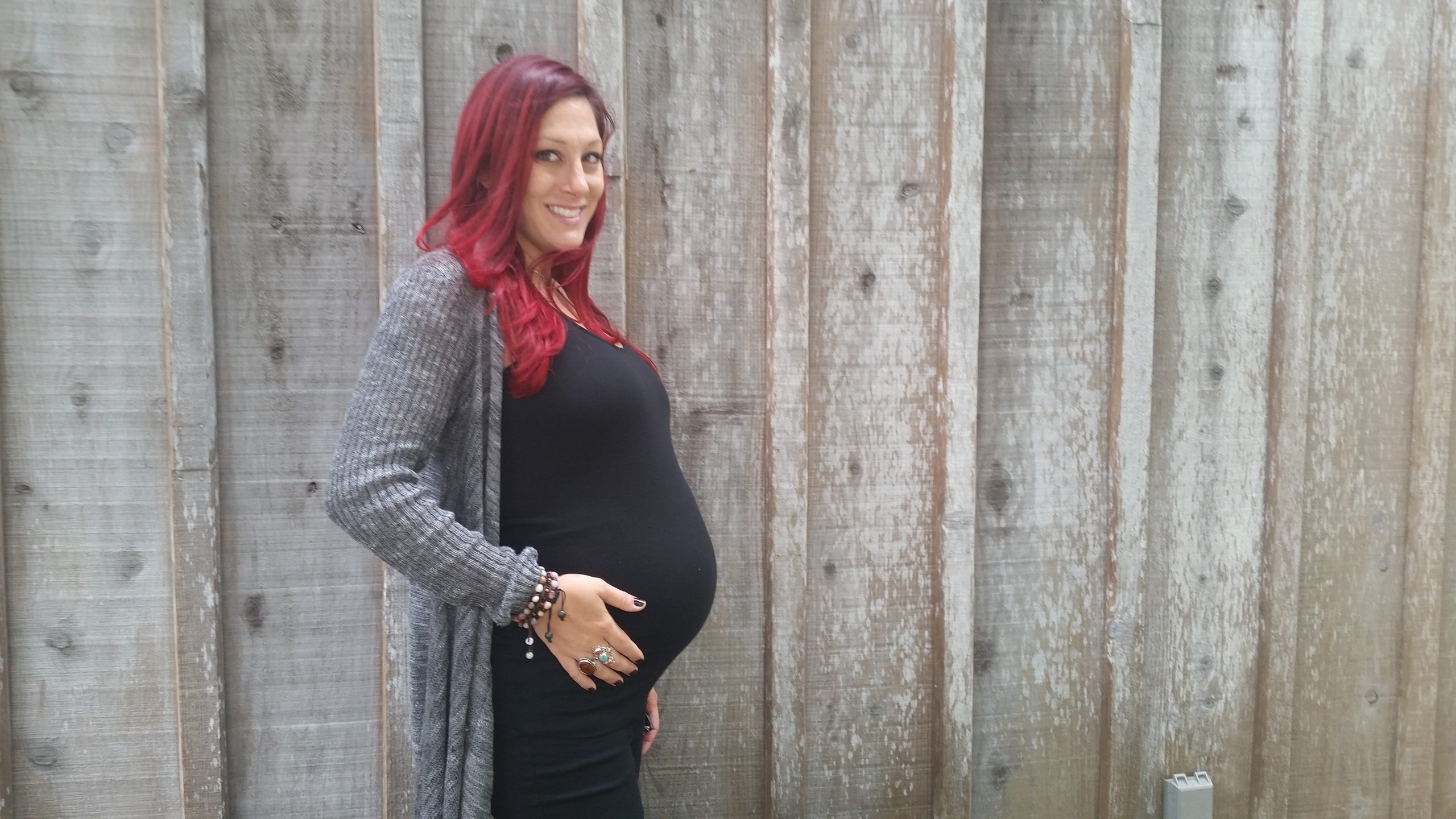How to own your calm in the “4th trimester”
Recently I gave a Chaos to Calm talk to a group of pregnant women on the cusp of motherhood. On the cusp of their worlds being turned upside down with a new human to care for.
Transitioning with calm to motherhood
The transition into motherhood with a newborn looks different for everyone, but one thing is the same for all. It is chock full of surprises, of the unknown, of stress, and of course, imminent chaos.
So much effort and energy goes into thinking about labor and delivery. But actually, one of the most overwhelming times of life are the first months after your first baby is born.
I asked the group of mamas I spoke to, “What are you most nervous about happening after your baby’s arrival?”
The biggest concerns I heard were:
- “Will I get enough sleep?”
- “How do I tell my friends and family I don’t want them to visit right after the baby is born?”
- “Will I be able to breastfeed?”
- “Will I lose my identity?”
My answer to those questions were:
- No, you won’t get enough sleep (sorry!)
- Everyone will want to see the baby, but if you communicate with your loved ones and let them know when you are ready for visitors, you can successfully secure boundaries without hurting feelings (suggestions for how to phrase this below!).
- You’ll probably be able to breastfeed, but even if not, feeding your baby is the goal so don’t beat yourself up if it doesn’t work for you.
- Many women do lose their identity, but you can add motherhood to your identity without losing your core self.
The 4th trimester is a great time to establish a habit and mindset of calm that will carry you as your child grows through each stage, each coming with their own set of chaotic challenges.
How to find calm in the overwhelm of new motherhood
During my pregnancy, I focused on how I wanted my labor and delivery to go, making sure I had the healthiest pregnancy I could, and making sure my baby would be safe after he came home.
Looking back, it would have increased my calm if I had thought about:
- What happens if things don’t go according to plan? (Like when my water broke and my uterus didn’t get the memo to start contracting.)
- How would **I** be taken care of after the baby’s arrival?
Questions to ask yourself to help promote calm after delivery
Just as you’re doing with your birth plan, write down your visions for the following questions:
1 – What do you want your 4th trimester to look like?
Think about how you want to nurture your mind, body and spirit. Will you be on maternity leave? Will you be working and navigating a newborn? Do you have other children? How will their needs be met? How do you envision your needs being met?
2 – If you have a partner, how will you work together?
Discuss roles and responsibilities with your partner. Everyone has assumptions of who will do what with the baby, but it saves a lot of time, energy and arguments to have a specific conversation beforehand. This way you remove guessing, potential resentment, and chaos that comes from when expectations are not met.
Examples:
- Laundry
- Food prep
- Cleanup
- Diaper changes
- Bathing
- Bedtime duties
3 – What do you need to have ready so you can have the most connected postpartum experience?
Are all the relevant humans in your world aware of your pregnancy and due date? Have you set expectations with them on how your relationship with them will change during this time? Give your loved ones a heads up that you’ll need to focus on becoming a mother and may not be as responsive as you usually are.
4 – Who are your people to call if you need help?
Do you have people close physically who can come help you if you are in a bind? Ask them before the baby arrives if they wouldn’t mind being who you call if you need help. For example, I had mastitis once while Kyle was at work, and it was almost as painful as giving birth. Thankfully, I had two friends on speed dial I could call to help with my baby while I worked to get rid of it.
5 – How are you going to feed your baby and what’s your backup plan?
As a first-time mom, breastfeeding can be much harder than TV shows make it look. Lactation consultants can help. Having one picked out ahead of time will save you stress if you need extra help.
Think about your backup plan if breastfeeding doesn’t work for you (for whatever reason). Will you use formula? Will you use donor milk? If you choose formula, which brand will you use? For donor milk, do you have the contact info for a milk bank?
Having a back-up plan will help you feel calm and prepared should breastfeeding not go as planned, as opposed to scared and overwhelmed.
6 – How are you going to feed yourself?
I completely lost my appetite for the first week after my son Sage was born and barely ate, because I didn’t have the capacity to prepare food for myself.
I was so caught up in feeding my tiny son, that I completely forgot to feed myself. My husband had to go back to work the week following the birth, and there were three other children to care for. Thankfully, my stepmom came to visit for a few days. She made sure I ate throughout the day and prepared a bunch of food I could easily grab or warm up or eat after she left.
If you have a partner, discuss who is responsible for making meals. If you’re a single mom, talk to a good friend about perhaps setting up a meal train (people love to help, and it’s important to let them!), or stock your kitchen with easy-to-grab food items.
7 – What does your spirit need?
With the physical recovery and demands of new motherhood, I neglected to take care of my spirit for months after Sage was born.
Then I realized we didn’t have to stay in a bubble in between feedings. I could take Sage for walks outside to fill my heart. While pumping, I could escape into a book or TV show. While Sage was napping, I didn’t have to be busy. I could still journal if I had the energy. I invited friends to come around. At other times I asked friends for space, as I didn’t want any pressure to entertain.
Some mamas find social media a compassionate space. I definitely did when I found myself exclusively pumping for 15 months. I joined a Facebook group (like this one) for exclusively pumping mamas.
No-one else would have understood my panic when I saw a bug floating on the top of my recently pumped “liquid gold.” They encouraged me to spoon the bug out of the milk and proceed, and Sage is alive and well. I couldn’t have been more grateful for that group than that moment.
Whatever fills your spirit now, don’t lose sight of it after the baby arrives. Look for opportunities – whether with your little one or with the help of your partner or a sitter. Feed your inner self, so that you are your most fulfilled self as a mother.
8 – Post important phone numbers on your fridge or wall.
So you don’t have to search for them in times of worry.
Examples:
- Pediatrician
- Your OB
- Advice Nurse Hotline
- Lactation Specialists
- Food delivery
Owning your calm in the 4th trimester
New motherhood is a roller coaster. Be proactive and set things up the best you can for maximum calm so you can focus on connecting with your new baby. Then try to ride the waves of the unknown. So much of the postpartum experience is incredibly beautiful and loving, and a lot of it is draining. It’s normal.
And if you aren’t up for visitors the first few months? That’s totally okay!
Be open and honest with everyone wanting to visit. You can say something like, “This is all new to me and I don’t know what I’ll need or what I’ll be ready for. I love that you want to support and help, but I first need to get my feet on the ground and settled before having visitors.”
This is yours and your partner’s transition to new parenthood, and no-one else’s. Don’t overextend for the sake of pleasing others.
Be kind to yourself as you experience all the feelings. And if you feel increasingly depressed or anxious, or your partner tells you they’re noticing those changes in you, call your doctor. Postpartum depression and anxiety are real and debilitating, but both can be treated and improved. There is help.
For non-emergency care call your obstetrician, primary care doctor or call Postpartum Support Intl. 1-800-944-4773, www.postpartum.net for referrals and support near you.
For more tips on how to own your calm, sign up for the Chaos to Calm newsletter.

